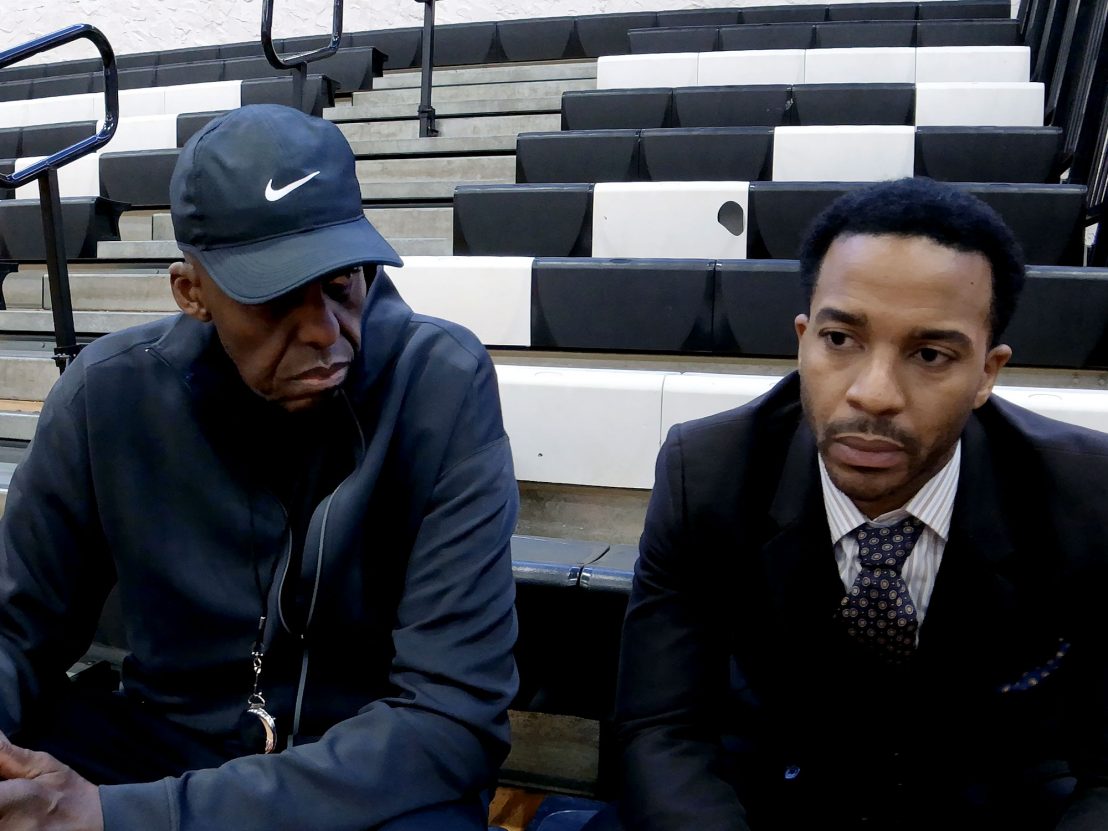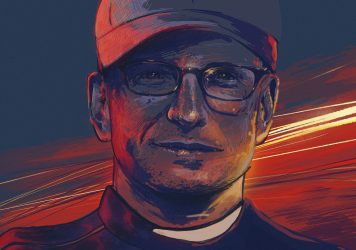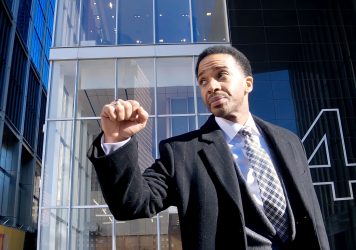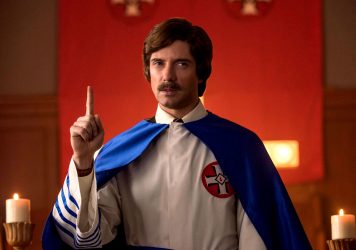
“I love the Lord and all His black people.” The first person to utter this phrase in Steven Soderbergh’s High Flying Bird is sports agent Ray Burke (André Holland). It’s his self-directed rebuke to an ill-advised jape about cracking whips, his shame written all over his face as his friend and mentor, Spencer (Bill Duke), stares at him in expectant judgment, waiting to hear the words. Spencer is the author of the phrase, meant as a show of contrition for anyone foolish enough to make even scant reference to slavery in his presence. Failure to repeat it on the spot means banishment from his court – and wherever he goes, his court comes with him.
Others repeat Ray’s blunder throughout the film with and without Spencer in earshot. But it’s his initial exchange with Ray that establishes High Flying Bird’s driving metaphor: The sports industrial complex as the modern evolution of the slave trade. “They invented a game on top of a game,” Spencer ruefully tells Ray before obliviously committing the same dreaded faux pa, comparing the NBA player-manager dynamic to the auction block. He lowers his head. “I love the Lord and all His black people.”
High Flying Bird, directed by Soderbergh but equally shaped by screenwriter Tarell Alvin McCraney, arrives a week after Super Bowl LIII prefaced festivities with a tribute to Dr Martin Luther King Jr and invited John Lewis and Bernice King, the late civil rights leader’s youngest child, to attend the commencing coin toss. The gesture reads as symbolic acknowledgement of the NFL’s crime against Colin Kaepernick, long sidelined simply for taking a knee during ‘The Star Spangled Banner’ as a silent protest against systemic racism and social injustice. But images of King can’t offset the NFL’s transgressions. Kaepernick is young and talented, and if the league upholds its vendetta, he may never play football again.
Soderbergh’s and McCraney’s work focuses on basketball rather than football; basketball, according to Ray, is commercially and culturally relevant in ways that sell merchandise and earn reference in rap lyrics. But the relationship between the film’s themes and the NFL’s treatment of Kaepernick remains, the connective tissue being the relationship between players and owners, the people controlling the game on the court/field and those controlling it behind the scenes: slaves in the fields and the overlords who monitor them.
If the analogy feels excessive, consider that the owners are actually called owners. That’s a loaded word, and more so when couched in a sports world setting. (On the ‘We Take a Knee’ episode of the Still Processing podcast, Wesley Morris and Jenna Wortham take the analogy even further, finding similarity between the aforementioned auction block and the practice of trading players between teams.)
The few white characters that appear in High Flying Bird function as antagonists. Zach Quinto plays Ray’s unctuous superior, and Kyle MachLachlan plays the NBA owners’ smug rep, litigating on their behalf in the midst of a protracted lockout. Quinto’s screen time is restricted to a high rise office that looks down on the city and its inhabitants; MacLachlan shows up in similarly lofty digs but deigns on occasion to walk the earth with mortals. They’re whiteness frames them as godlike, wielding grim power over black athletes’ livelihoods.
Ray – like Spencer, like Erick Scott (Melvin Gregg), Ray’s star prospect, like Sam (Zazie Beetz), Ray’s erstwhile assistant, and like Myra (Sonja Sohn), the steely, determined players’ rep – refers only to his white counterparts as “they”. “They” built the game on top of the game. “They” want control. “They” want to wrest the game that black Americans mastered away from them. Rare as white characters are in the film, the word “white” itself is comparatively rarer, replaced with language McCraney’s characters have invented to talk about whiteness as the unwanted nucleus of their world. It’s unsurprising that the person representing the owners is white, and that the person representing the players is a black. He wants jurisdiction over basketball to stay in white men’s hands. She wants to return it to the NBA’s predominantly black playerbase.
But the power imbalance they’re struggling over is tilted in favour of “they”. “They”, after all, dictate where the players play. “They” commodify black bodies in the practice of trading. That primacy extends to football, too, couched in the trajectory of Kaepernick’s career, influenced solely by the whims of the NFL’s white executives, who insist they’re not blackballing him despite all evidence to the contrary. And in High Flying Bird, “they” are rightly called to the floor for their complicity in the subtle, insidious propagation of America’s original sin.
Published 8 Feb 2019

By Matt Thrift
The American director discusses his long-awaited return to feature filmmaking with Logan Lucky.

André Holland plays a sports agent who takes on the NBA in this quietly radical drama from Steven Soderbergh.

Like Do the Right Thing and Bamboozled before it, Spike Lee’s film is a wake up call to white America.